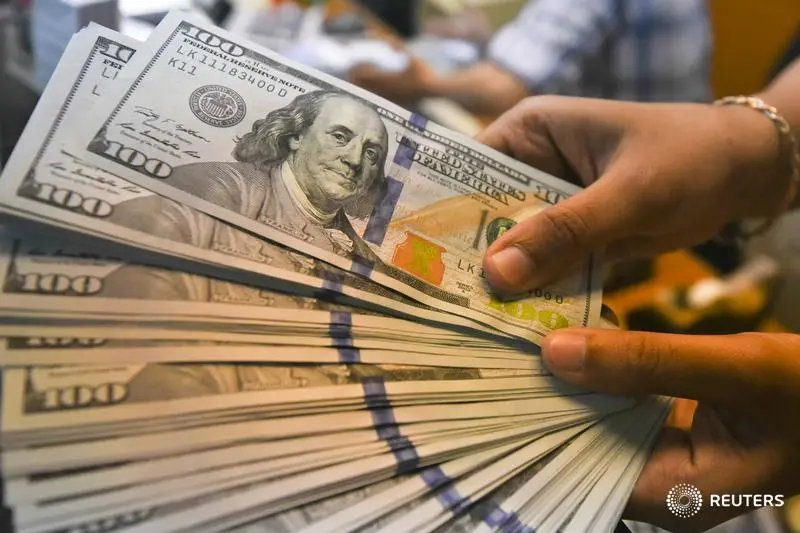PHOTO
Muscat: Experts are calling for remittances to be invested in Oman, after new figures from the country’s leading financial authority revealed that OMR3.7 billion was sent home by expatriates in 2017.
The Central Bank of Oman reported that in 2017, up to OMR3.7 billion was sent overseas by expatriates living in the country, a slight drop from the OMR3.95 billion the previous year.
According to the CBO annual report, remittances made by expats to their families back home have soared from 2012 onwards, when the amount of money sent home by foreign workers in Oman hovered around OMR3.1 billion, and climbed steadily up to OMR3.5 billion in 2013, OMR3.96 billion in 2014, and peaked at OMR4.23 billion in 2015.
With such large amounts being remitted home, financial experts in Oman suggested a taxation on remittances to divert some of this money back into the country. Should Oman do so, it will be the second GCC nation to tax remittances after Kuwait, which last April took the decision to levy fees on remittances as a way of raising alternative sources of income.
Regarding taxing remittances, Hamood Al Tooqi, a financial analyst and journalist said, “I hope there will be a law that will impose certain fees paid to the government in exchange for any foreign transfer.
“We also hope that there is legislation encouraging expatriates to invest in the Sultanate as a right of ownership. For example, some could buy apartments and then bring their families, as opposed to sending money to their home countries.”
Regarding a possible tax, R. Madhusoodhanan, GM of Global Money Exchange, said, “For any economy, resources are required for development. Both direct and indirect taxes are major revenues for the government. Like it or not, the government has to explore various options. However, I believe this in no way it is going to affect the remittance business, though there may be some resistance in the short term.”
“While the economy fluctuates, expats may have to absorb a little pain when remitting money or when making purchases via Value Added Taxes (VAT),” he added.
“However, I believe overall the impact of any such tax will only have a very marginal effect on remittances. The only issue would be to monitor and stop illegal channels of remittances, as such a tax would give them a boost in popularity.”
Also, Latif Shahdad, General Manager of Mass International, said: “The largest numbers of expats are Indians who remit weekly and monthly, and their families depend a lot on remittances. Perhaps Omani Rial is gaining historical strength against the Rupee, hence many expats are holding money back so that the Rial crosses heights in exchange against the rupee, so this is definitely a reason at present.”
“Another reason is the Omani rial is gaining strength against the Euro,” he added.
“So there is this factor of the Rial being strong, overall, in exchange, and people are waiting for it to be stronger, as the tendency is to hold now and send later. But predominantly, it’s because many expats have left and others are in a wait and watch situation, since the market conditions have changed. This is a big reason the numbers are showing a predominant impact.”
The top recipient countries for remittances in 2017 in dollars were India ($69 billion), China ($64 billion) and the Philippines ($33 billion). Despite that massive flow of cash, remittances tend to make a much bigger impact in smaller and poorer nations. When remittances are taken as a share of gross domestic product, the top countries worldwide last year were Kyrgyzstan (35 per cent), Tonga (33 per cent), Tajikistan (31 per cent), Haiti (29 per cent) and Nepal (29 per cent).
Residents in Oman, though, were concerned as to how this would impact the amount of money sent back home.
Radha, a housemaid working in Oman, said, “I have two children back home who are currently studying in college. If a tax comes in, it means there is less money to send to India. Things are expensive back home and all of us are here to earn money for our loved ones.”
Latif, a cleaner from Bangladesh, added, “I am the only earner in my family and all of them depend on me back home. I am scared of what this tax means, because things are already quite difficult.”
A regional manager in Oman, Victor Samuel, added, “My wife, son and I all work here because the earning potential here is far greater than it is in India. Imposing a tax, especially in such difficult times, is quite hard on us.”
© Muscat Media Group Provided by SyndiGate Media Inc. (Syndigate.info).





















